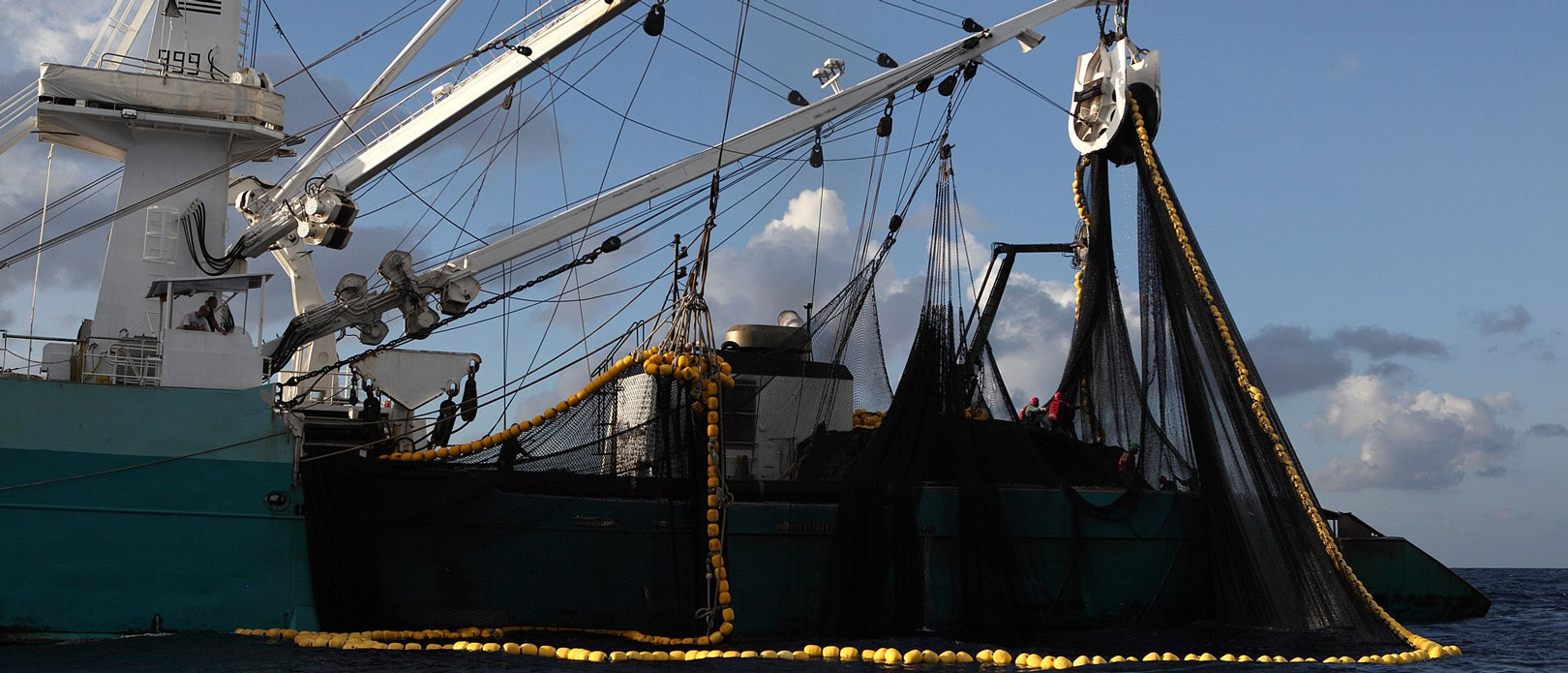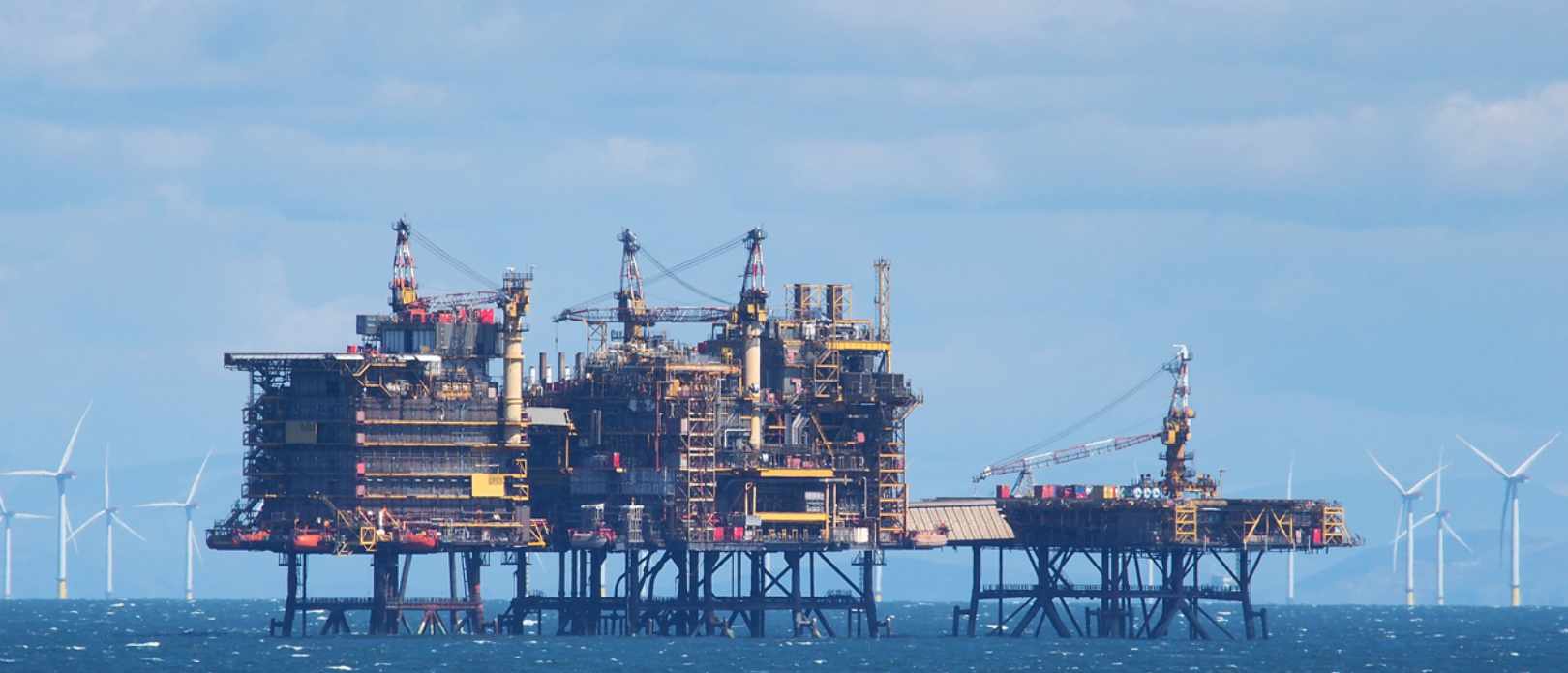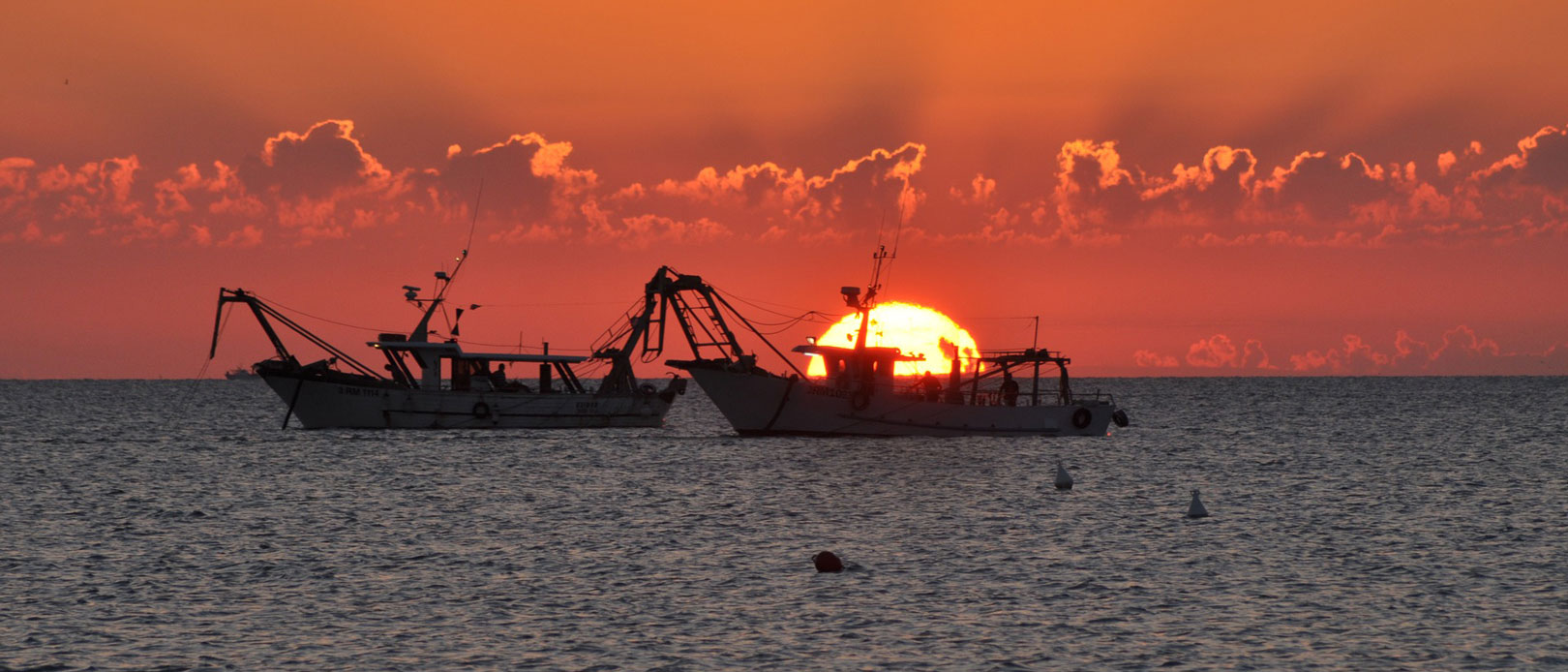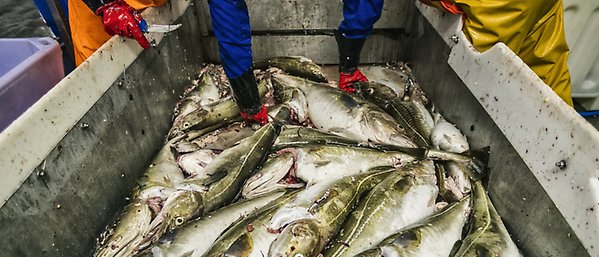OCEAN GOVERNANCE
Six principles for a thriving Blue Economy
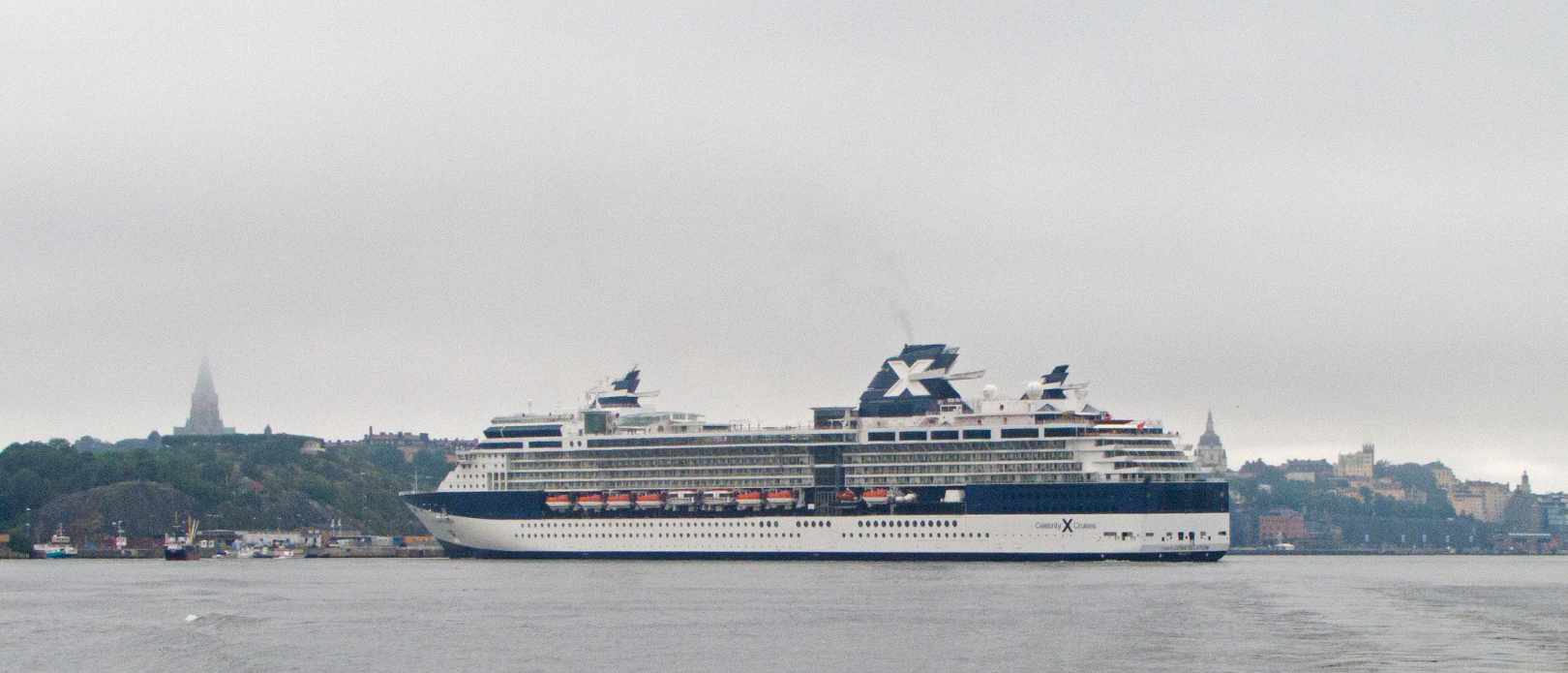
A review reveals a complex web of interactions among ocean sectors. It shows that some sectors coexist synergistically with others but many oceans sectors have negative effects on other sectors, often incurred via degradation of marine ecosystems. Photo: G. Aneer/ Azote
Increasing interactions between sectors like fishing, drilling and shipping risk side-lining efforts for ocean equity and sustainability. A new review provides guidelines for sustainably and more just use of the ocean
• Interactions between 13 out of 14 ocean sectors negatively impact vulnerable ecosystems, and through this impact other sectors.
• More recently emerging ocean sectors have fewer negative and more positive interactions with other sectors.
• Six principles are developed to guide decision-making in addition to an interactive tool for readers and decision-makers to explore ocean sector interactions
AN OCEAN OF CONNECTIONS: Ocean activities are expanding rapidly and outpacing global regulation. As sectors battle for space and resources, vulnerable ecosystems and communities risk devastating consequences.
The call for better measures to manage a prosperous, sustainable and equitable Blue Economy comes from a review published in Environmental Research Letters.
Lead by centre researcher Beatrice Crona and colleagues from the Stockholm Resilience Centre, the Swedish Public Health Authority, the University of Tasmania, Stanford Centre for Ocean Solutions and Lancaster University, the research team analyzed 3817 articles to map interactions between ocean sectors and develop a set of principles to help guide decision-making and highlight inevitable trade-offs.
Alongside the principles, the team have developed an interactive tool for readers and decision-makers to explore ocean sector interactions.
The review reveals a complex web of interactions among ocean sectors and shows that some sectors coexist synergistically with others (such as renewable energy and tourism), but many oceans sectors have negative effects on other sectors, often incurred via degradation of marine ecosystems.
Of 14 ocean sectors reviewed, nearly all (13) negatively impact the environment.
Our work shows that most ocean sectors negatively impact the biosphere base on which they jointly rely - and thus negatively affect each other. This risks promoting an overoptimistic idea of what Blue Economy growth can deliver.
Beatrice Crona, lead author
Acknowledging impacts
The study adds novelty to the established field of Marine Spatial Planning by revealing a number of outcomes of interactions among ocean-based economic sectors that go beyond merely competition for space.
These include the positive and negative effects on the natural capital on which other sectors rely, affecting the touristic value of a site, or affecting the daily operations of other ocean-based economic sectors.
“Our findings bring to light a range of trade-offs between ocean-based sectors. Being aware of these is instrumental to strategic decision-making and policy development, particularly as we are on the cusp of a seemingly major expansion of many sectors in the marine domain,” says, co-author Emmy Wassénius.
The high number of different and growing sectors simultaneously affecting ocean ecosystems emphasizes the importance of acknowledging cumulative impacts.
Several synergies among sectors
The team also emphasize that there are synergies among ocean sectors, and paying closer attention to these can lead the way towards a more sustainable Blue Economy.
Renewable energy sectors and tourism are examples of sectors that are involved in many mutually beneficial (non-antagonistic) interactions.
For renewable energy sectors, these revolve around so- called ‘multi-use platforms’ that integrate multiple uses, such as multiple forms of renewable energy production and aquaculture.
“It shows the mutual benefits that can be achieved when infrastructures can be designed with multiple purposes in mind”, says co-author Robert Blasiak.
“For example, energy structures can act as artificial reefs, providing recreational opportunities, but also additional habitat and possible augmentation of fish stocks by aggregating fish and acting as de-facto fishing-free zones”.
To help public and private decision-makers get an easy overview of how a specific sector is affecting, or affected by others, the research team has also developed an interactive tool to explore the databased compiled for the study.
Guiding principles for strategic decisions
The ocean governance landscape is not currently well-equipped to deal with the full range of trade-offs and opportunities likely to arise in the pursuit of a Blue Economy in a rapidly changing ocean context.
“These principles reach beyond purely economic analysis to highlight key social and ecological dimensions of importance for setting the Blue Economy on a just and sustainable course, and for delivering on the 2030 sustainable development agenda,” concludes co-author Jean-Baptiste Jouffray.
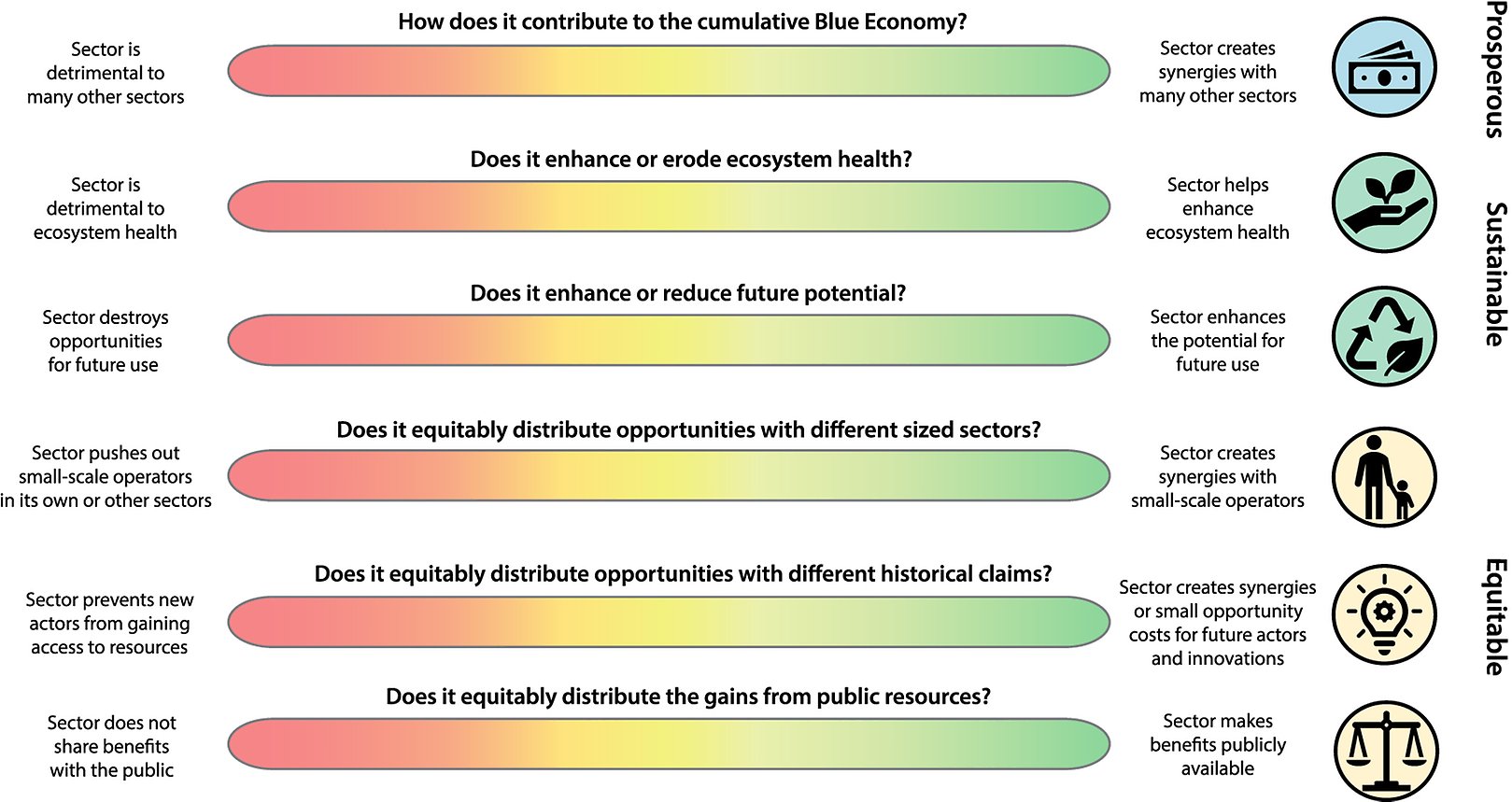
Guiding principles for delivering a prosperous, sustainable and equitable Blue Economy. The principles are operationalized through questions which put focus on six key economic, environmental and social dimensions brought to the fore by our analysis of ocean sector interactions. These should be seen as a deliberation tool to compare and contrast sectors and actors in the ocean domain, helping to highlight potentially costly trade-offs, or indicate opportunities for synergies in any decision situation.
Crona, B., Wassénius, E., Lillepold, K., Watson, R., Selig, E., Hicks, C., Österblom, H., Folke, C., Jouffray, J.B. and Blasiak, R., 2021. Sharing the seas: A review and analysis of ocean sector interactions. Environmental Research Letters. 16 063005, https://doi.org/10.1088/1748-9326/ac02ed
